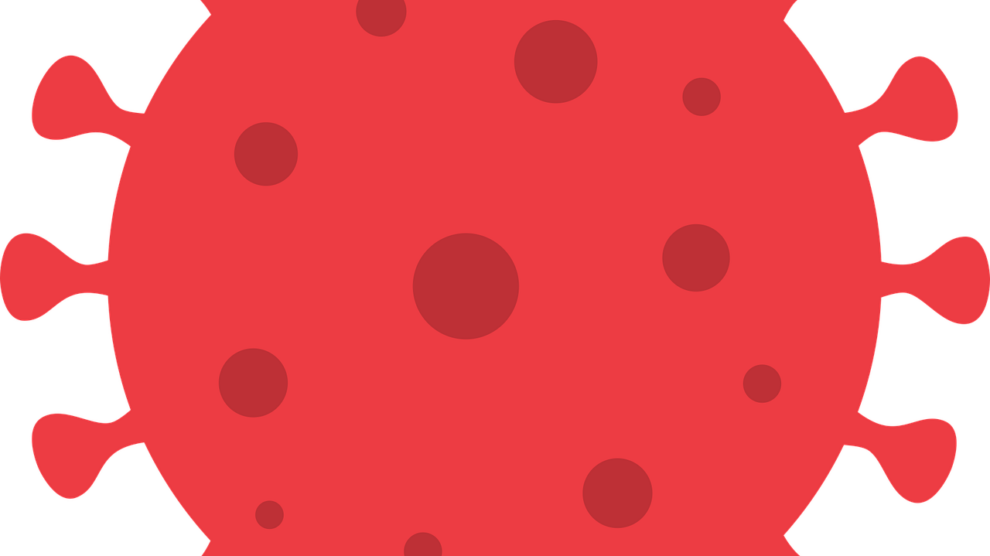COVID-19 is a highly infectious respiratory illness that can spread from person to person. One of the best ways to protect yourself and those around you at work or home from COVID-19 is to have the right information and follow healthy habits outlined in this post. Read on.
Disinfect Surfaces Regularly
Use a disinfectant to wipe surfaces such as desks, tables, counters, etc. and objects such as keyboards, telephones, ID badge, eyewear, etc. on a regular basis.
The CDC (Centers for Disease Control) recommends EPA-registered household disinfectants for disinfecting frequently touched surfaces.
Alternatively, soap and water solutions, detergent solutions, diluted household bleach solutions, or alcohol solutions (with 70% alcohol or higher) can be used.
After work, make sure to handle possibly contaminated items such as work bags, shoes, work clothes, ID-badge, supplies, etc. with care. Leave as many items as possible at work. Disinfect stuff you carry from work before you place them casually on a table or inside a closet at home. You can leave shoes outside the home. Shower right after you get back home from work.
Wash Your Hands Often
Use soap and water or an alcohol-based rub (with 60% Ethyl Alcohol or higher) to wash your hands.
Experts say that soap annihilates the Coronavirus. But when soap isn’t available, the CDC recommends use of a hand sanitizer.
The key times when it’s highly advisable to wash your hands with soap and water or use a hand sanitizer are:
- After you remove hand-gloves
- After you use the restroom
- After you get off a public transport vehicle
- When you enter the workplace in the morning
- After you come in contact with a person who is sick
- Before you are about to have a meal
- After blowing one’s nose or coughing/sneezing
- Before and after close-contact with a customer or visitor
Avoid Close Contact
The novel Coronavirus (COVID-19) mainly spreads among people who are in close contact for an extended duration of time. So, strictly avoid handshakes or high-fives until we move past the pandemic.
Virus spread normally happens when a person infected with COVID-19 talks, sneezes, or coughs and droplets containing the virus launch from their noses/mouths into the noses/mouths of those nearby.
Therefore, it is important to avoid close contact with anyone who is sick in the workplace. In fact, it is advisable to maintain a distance of at least six feet from every other person in the workplace or during your daily commute to work.
An asymptomatic person who carries the active virus but displays no symptoms at all could be a silent spreader. So, you cannot let your guard down.
Do Not Go to Work If You Are Sick
During the COVID-19 outbreak, it isn’t always possible to know if you are COVID-19 positive.
If you are experiencing COVID-19 symptoms such as fever, tiredness, sore throat, dry cough, shortness of breath, diarrhea, etc. or have reasons to believe you may have come in contact with COVID-19 positive people, call your local government health department or inform your employer at once.
Your employer may have procured rapid COVID-19 detection kits or a hospital in your city may be conducting testing. Isolate yourself at once and if you must continue working, ask your employers or HR managers to allow you to work from home.
Wear a mask, wash your hands often, and cover your coughs and sneezes until the test results arrive. If your medical condition is worsening, you should seek prompt medical attention.
Avoid Touching Your Mouth/Nose/Eyes
If you are still heading out of the home to work, there’s always a risk of the active virus landing on your hand. It could be from an infected surface or a person.
The virus can get inside your nose or mouth only if you touch your mouth, nose, and eyes. Therefore, even if you are wearing a facemask, make sure not to touch your mouth, nose, and eyes.
If you must, wash your hands with soap and water for at least 20 seconds before you rub your eyes, touch your mouth, wipe your face or blow your nose.
Also, when you cough and sneeze, make sure to cover your mouth/nose with a tissue or elbow to prevent your co-workers from getting sick.
Help Your Employer Identify and Isolate Suspected Cases
Quick identification and isolation of potentially COVID-19 infectious workers is the first step towards protecting everyone in the workplace. Managers and supervisors cannot always know if a worker is hiding information, not taking enough precautions or has come in contact with someone who has tested positive for COVID-19.
If you know of any such person in the workplace, it is absolutely necessary to inform your supervisors right away to limit the spread of the virus.
Suspected cases may be asked to leave the worksite, allowed to work from home, or advised to get tested for COVID-19 at an authorized facility.





